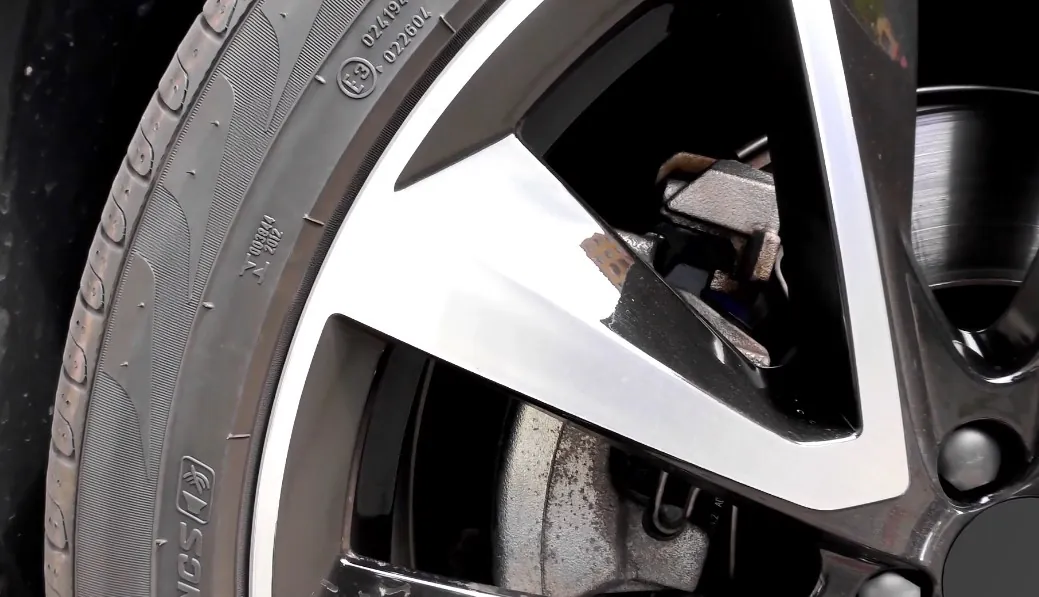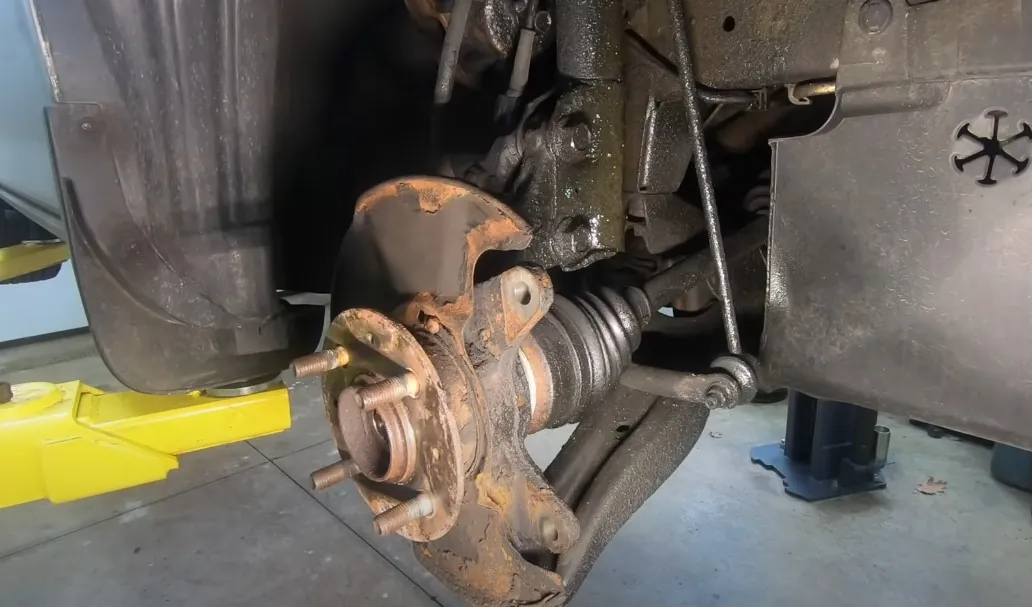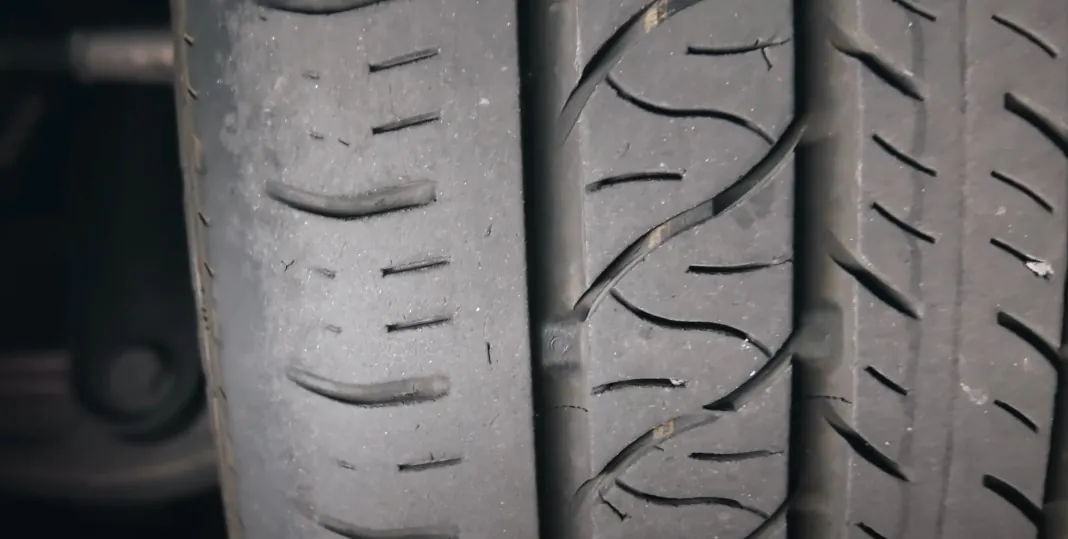
Share Post:
You’re driving down the road, enjoying your favorite playlist, when suddenly, your steering wheel starts to shake like it’s got a life of its own. Annoying, right? But more importantly, it’s a sign that your car is trying to tell you something.
Discomfort is not the only thing you should think about here—a vibrating steering wheel could point to an issue that, if left untreated, could lead to bigger (and more expensive) problems down the road.
Let’s get into what might be causing this and, more importantly, how you can fix it.
Table of Contents
ToggleKey Highlights
- Tires: Check if they’re balanced or if there’s uneven wear.
- Alignment: Get a wheel alignment to prevent uneven tire wear.
- Brakes: Notice shaking when braking? Have your brake rotors and pads inspected.
- Wheel Bearings: Pay attention to vibrations during turns—it might be the wheel bearings.
- Suspension: Have a professional inspect the suspension for worn or damaged parts.
- Tire Pressure: Keep an eye on tire pressure and adjust as needed.
- Accidents: If you’ve had a recent impact, check for a bent axle or driveshaft.
Common Reasons Your Steering Wheel Might Be Shaking
A shaky steering wheel isn’t just a random fluke. It’s usually caused by something mechanical, and many times, the solution is simpler than you might think.
Here’s a list of some of the usual suspects behind that shaking sensation.
1. Unbalanced Tires
A common reason for your steering wheel to shake is unbalanced tires. Imagine your car as a complex system, and when the tires aren’t balanced, you’ve got uneven weight distribution.
This imbalance makes the wheels spin unevenly, leading to that shaking sensation you feel—especially when you’re speeding up on the highway.
Solution
Head over to a professional tire shop and have your tires balanced. The process is pretty straightforward: the mechanic adjusts the weight on each tire to make sure they all spin evenly, no matter if it is 275 or 295 tires, or any other type.
2. Wheel Alignment Issues

Another culprit could be wheel alignment. Misalignment happens for all sorts of reasons: maybe you hit a pothole that was deeper than you thought, or perhaps you’ve bumped a curb or two.
Over time, these small accidents can knock your wheels out of alignment, which leads to uneven tire wear and a wobbly steering wheel.
Solution
Get your alignment checked by a professional. Proper alignment ensures your wheels are all pointing in the right direction, which means no more fighting the steering wheel to keep your car straight.
Plus, it helps your tires wear evenly, saving you money in the long run.
3. Worn Brake Components
Does your steering wheel only shake when you hit the brakes? If so, you’re probably dealing with worn or warped brake rotors.
When brake rotors are warped, the contact between the rotors and the brake pads isn’t smooth, causing the steering wheel to vibrate.
Solution
Have a mechanic inspect your brake rotors and pads. If they’re worn out or warped, replacing them should get rid of the shaking.
4. Damaged Wheel Bearings

Wheel bearings are what let your wheels spin freely. When these bearings get worn out or damaged, you’ll notice vibrations, especially when turning.
It’s one of those issues that can get worse if ignored, leading to potential wheel detachment—not something anyone wants to experience.
Solution
Get those wheel bearings checked out. If they’re damaged, they’ll need to be replaced. It’s one of those jobs that a professional needs to handle, but trust me, it’s worth it for peace of mind on the road.
5. Suspension System Problems
The suspension system in your car—including components like tie rods, ball joints, and control arms—plays a huge role in keeping your car stable.
Worn or damaged suspension parts can result in a shaky steering wheel and poor handling.
Solution
A professional inspection of the suspension system will help identify any worn-out components. Replacing damaged parts is key to keeping your car’s handling sharp and ensuring a smooth ride.
6. Tire Issues

Tires themselves can be a huge factor. Issues like uneven wear, flat spots, or any sort of damage can definitely cause the steering wheel to shake.
Even incorrect tire pressure can make a difference—too much or too little air can create an uneven ride.
Solution
Check your tire pressure regularly to make sure it matches what your car manufacturer recommends. Also, take a good look at your tires every now and then. If you spot uneven wear, it might be time to get them rotated or replaced.
7. Bent Axle or Driveshaft
If you’ve been in a minor accident or had a significant impact, it’s possible the axle or driveshaft is bent. This will usually cause vibrations that get worse as you drive faster.
Solution
Get a mechanic to do a detailed inspection if you suspect a bent axle or driveshaft. If it turns out to be the case, repairing or replacing it is necessary to get rid of the vibrations.
Preventing a Shaky Steering Wheel
@carknowledge_ The steering wheel is shaking, a trick to fix it!#driving #car #drivingtips #drivinglessons ♬ 原聲 – chequanlaosi – Driver_Arya_
Nobody wants to deal with a vibrating steering wheel, and the good news is that many of the causes can be prevented with a bit of care and attention. Here are a few tips to help keep your rides smooth and stress-free.
Regular Maintenance Is Key
Staying on top of your vehicle’s regular maintenance schedule is crucial. This means getting tire balancing, alignments, and brake inspections done regularly.
Drive Smart
We all know potholes are unavoidable sometimes, but making an effort to avoid them whenever possible will save you a ton of headaches.
Hitting potholes or curbs doesn’t just hurt your car—it could be the root cause of all that shaking.
Pay Attention to the Little Things
A steering wheel that starts to shake is your car’s way of telling you something’s wrong. Don’t ignore it.
Prompt attention will save you from bigger problems down the road—problems that could affect not just your comfort but your safety, too.
It’s All About Listening to Your Car
I know—cars can be complicated, and it’s easy to get overwhelmed when something goes wrong. But when your steering wheel starts to shake, you should definitely pay attention.
The quicker you figure out what’s wrong and get it fixed, the sooner you’ll be back to those smooth, stress-free drives we all enjoy. So, next time you feel your steering wheel start to do its little dance, take it as a sign that it’s time for a check-up.
A few small adjustments or repairs today could save you a lot of hassle (and cash) tomorrow. Plus, you’ll be keeping your car’s handling safe and steady, which is the most important thing at the end of the day.
Related Posts:
- Trac Off Light - What It Means and How to Fix It
- Power Steering Fluid Leak? Here’s How to Repair It…
- Clicking Noise In Dashboard When Car Is Off - Here’s…
- Car Leaking Oil? Here's What You Need to Know and…
- Think Google Can Fix Your Car? Here’s Why You’re…
- Car Clicking But Won’t Start? Common Causes and How…








